I experienced a lot throughout that time, and did a blog with regular (usually) weekly updates throughout. Obviously not going to replicate the whole thing here, as that would be tedious, but I'm going to post a few snippets of my best and most interesting bits. Hopefully it will make sense without all of the context. If anyone does actually want to read the blog in full it's here: http://sophieinmali.wordpress.com/
Week One
"I’m currently sat in my room in the International Service Office, in Bamako, Mali, in a temperature of about 25 degrees Celcius, feet covered in dust, hair still soaked from a torrential thunderstorm, with the fan being generally ineffectual. I’ve been here for a grand total of two days, and already so much has happened, I’m wondering how to fit it all into one blog post...
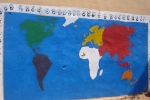
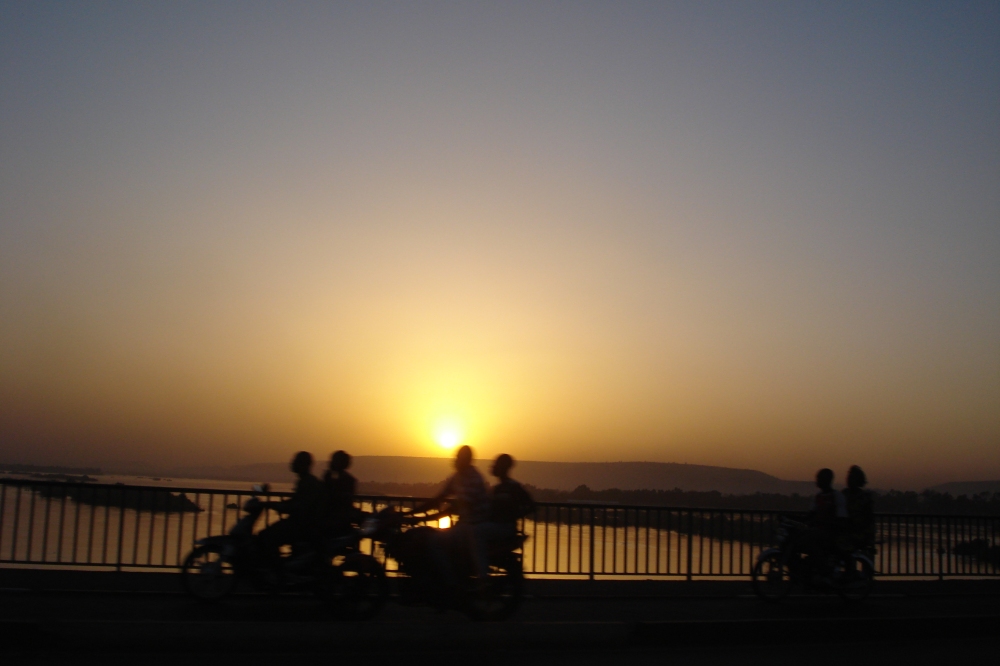
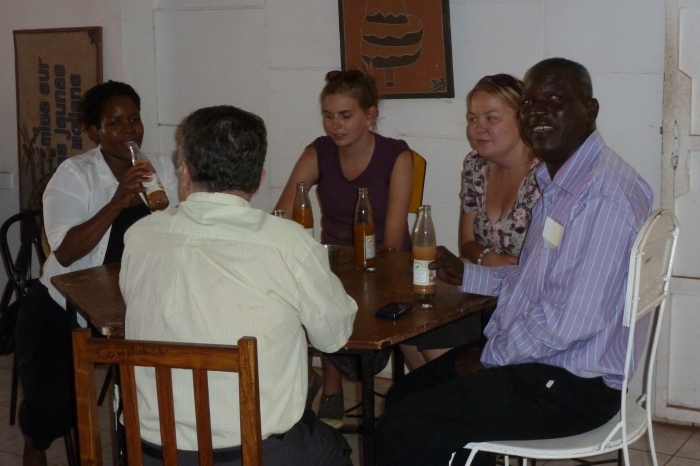
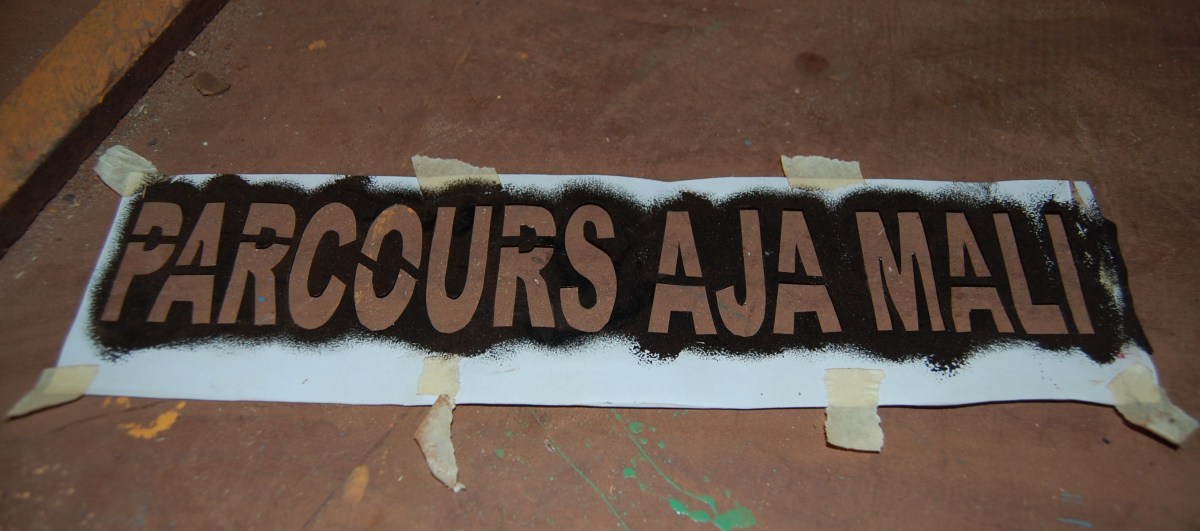
In Mali, you have to greet people, it’s considered disrespectful not to, but there are about a million different greetings! Mostly a simple ‘Bonjour’ will do, but in Bambara it’s complicated. From;
6am-11am – I ni sogoma
11am-2pm – I ni tile
2pm-6pm – I ni oola
6pm-6am – I ni su
Men are supposed to reply with ‘Mm ba ni [time of day]’ and women ‘Nseh ni [time of day]’ but they very rarely do, and it’s hard to carry on a conversation after that! They also have lots of rules about who you can and can’t joke with, it’s quite complicated. There are many different ethnicities from different parts of Mali, and only people with certain family names can ‘joke’ with each other. When you can joke, people often call each other their ‘sister’ (as Salif did with Fatima), ‘mother’ or even ‘slave’ when really they’re just a friend and have a family name they can joke with. I can’t really explain it properly, but Salif said it helps to avoid racial problems...
The people at IS are;
Rene – Administration and Finance
Jean Pascal – Development Worker
Mohammed Dolo – APEJ Intern (the Malian national volunteering scheme, the idea is that we share experiences)
Adama Dolo – Interpreter (though he’s very shy in big groups, bless him)
Brehima – Driver
Awa – Cleaning Lady
In the IS talk, Fred talked about the history of IS Mali, and they about the ICS programme and our projects which was interesting, but we already knew most of it. We also talked about visiting the rest of Mali, and we found out some interesting places to go.
It turns out that the American ‘Red Zone’ is quite a lot higher than the British one, and as Djenne is on the border, it’s safe to visit according to the Americans. The only reason that the British won’t allow us to go, is that they only have two people here in Mali, the ambassador and the previous consulate, so they don’t have the man power to be dealing with problems if something goes wrong. The Americans however, have a large presence here, and so have arms and men to operate a search and rescue if needs be. Think it’s time we reminded the Americans of the special arrangement!
Bamako itself is really nice, though it’s true that it’s the epitome of African cities – busy, dusty, full of markets and people. We’re staying outside of the city centre though, and there are little shops to buy bread and water from though so it’s nice. We’ve befriended some of the local children, though I haven’t really spoken to them much yet, and everyone is really nice and friendly. All of the team get on, which is really nice, and we all tend to eat together and things.
It’s very odd being in an African country that speaks French. I can read all of the signs, and understand quite a lot of what people are saying, but I can’t find the words to respond, and they often mix it with Bambara anyway, and it’s hard to understand the culture, so it’s odd kind of half understanding things, and constantly having to pay attention."




4th October 2011
"The market was absolutely indescribable. So big and so busy and so noisy and so many people and fumes and sun and just….everything! It was a complete over-stimulation of all your senses and completely cemented Bamako’s place as the epitome of Africa. It’s split into different sections depending on what you’re buying, i.e. crafts, fruits etc. We went to the crafts section first, which is targeted specifically at tourists, and is quite similar to things I’ve seen before, with hundreds of beautifully made drums, jewellery, models and statues, and many men all trying to sell you the same thing for different prices.
They spoke very good English and insisted on us trying all the drums and things to try and entice us to buy them; I didn’t bother because, like an idiot, I had forgotten my water and was feeling a bit tired and dehydrated, but the others did and they were really good! They also had shoes made from real crocodile skin, which was interesting, but a bit disturbing.
They spoke very good English and insisted on us trying all the drums and things to try and entice us to buy them; I didn’t bother because, like an idiot, I had forgotten my water and was feeling a bit tired and dehydrated, but the others did and they were really good! They also had shoes made from real crocodile skin, which was interesting, but a bit disturbing.
It was really strange however, as there were some weird things when walking around the market. You’d go from traditional African products, to plush Father Christmas and reindeer toys, which was a bit surreal when it was pushing 36 degrees in the middle of October. Another bizarre thing is that Malians LOVE Barack Obama. Loads of people wear t-shirts with his name on, there are posters everywhere, and when you talk to people they really like him. Another one of their idols however, is Ahmadinejad, the Iranian president, and they talk a lot about how Iran is their friend; what a contrast. There is also a massive amount of pro-Gaddafi support here, but more on that later."




11th October 2011
"There are three main people within AJA [the NGO partnered with International Service, the organisation we worked for out there] that we deal with; Fatimata, head of the Fèrè Kènè project (the gallery that supports and promotes the artisans), Mme. Coulibaly, the director of the entrepreneurs we’re dealing with, and Sougoudogo, head of the Baguineda project, which is the market gardening etc. Sougoudogo was the rudest about us, saying that we weren’t what we expected, and that he expected more from us, and Mme. Coulibaly is quite scary and very much looks down her nose at us.
After that meeting, we came away with about a million things to do, but we weren't entirely sure how to go about doing any of them. We took the weekend off to relax however, and to think it over, and we gradually became more optimistic as we got more and more ideas. The only work we had to do over the weekend was a stupid, pointless 70 day timetable of our time at AJA; when we were going to do specific tasks for each project, and who was going to complete them. This was totally impossible and impractical, as until we’d spoken to a few people, we had no idea of the timeframes each job would require, and so we just made up a generic one on Sunday evening to keep them happy.


After that meeting, we came away with about a million things to do, but we weren't entirely sure how to go about doing any of them. We took the weekend off to relax however, and to think it over, and we gradually became more optimistic as we got more and more ideas. The only work we had to do over the weekend was a stupid, pointless 70 day timetable of our time at AJA; when we were going to do specific tasks for each project, and who was going to complete them. This was totally impossible and impractical, as until we’d spoken to a few people, we had no idea of the timeframes each job would require, and so we just made up a generic one on Sunday evening to keep them happy.


On Sunday morning, I braved the market again, with the others, mainly to have a look at the Fetish market. In hindsight, I almost wish I hadn’t, as it was vile. There were horse heads, donkey heads, monkey heads (with perfectly preserved facial expressions), dead parrots and loads of other (thankfully) unidentifiable things, and the smell was overpowering. We gave up on that after about 10 minutes, and split up to try and find the fruit market (it’s like a warren or a maze, and is about 4 miles square altogether, so unless you know where you’re going or pay someone to take you, it’s impossible to get anywhere).
It was about 38 degrees, so after walking for about half an hour, we gave up, and walked for another 20 minutes to find a Sutrama back home. I did manage to see however, many Gaddafi stickers on the back of cars and Sutramas, and also some Barack Obama underpants!
It was about 38 degrees, so after walking for about half an hour, we gave up, and walked for another 20 minutes to find a Sutrama back home. I did manage to see however, many Gaddafi stickers on the back of cars and Sutramas, and also some Barack Obama underpants!
The walk to work every day is really bizarre. It takes us about 30 minutes, which is fine at 7.30am when it’s relatively cool, but walking home in the afternoon is like torture occasionally. It’s a really interesting walk though, so it’s worth it. We walk past so much contrast, beginning with fairly nice houses for the area, then little huts, where there is raw sewage and children playing in the street, then an area with a few shops and stalls, with huts where people are constantly banging away and making things, although I don’t know what.
The last part of our walk is perhaps the most interesting however; after dodging roosters, children and poo for about twenty minutes, we then walk past the South African embassy, and the UN High Commission for Refugees, as well as other NGOs such as Water Aid. It’s a weird contrast.
The last part of our walk is perhaps the most interesting however; after dodging roosters, children and poo for about twenty minutes, we then walk past the South African embassy, and the UN High Commission for Refugees, as well as other NGOs such as Water Aid. It’s a weird contrast.
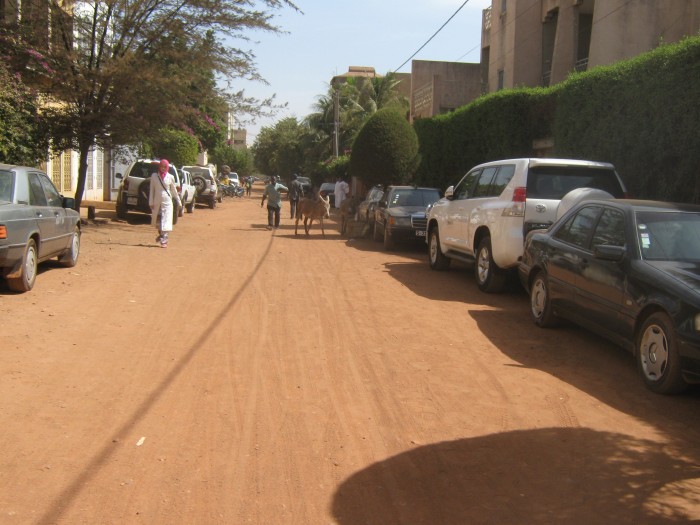

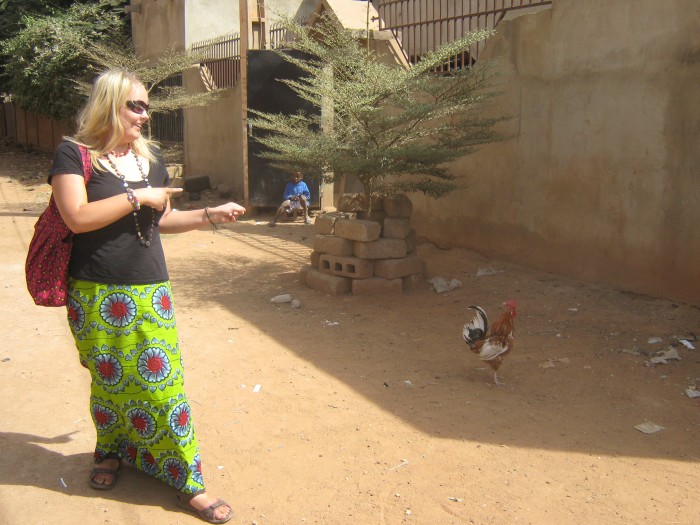
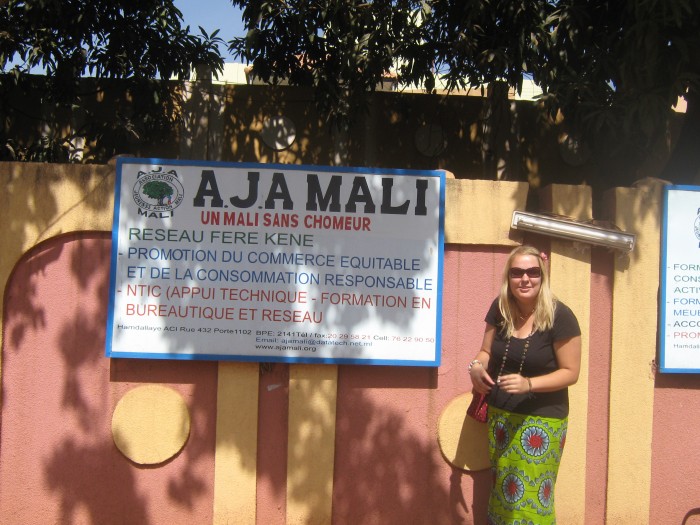
16th October 2011
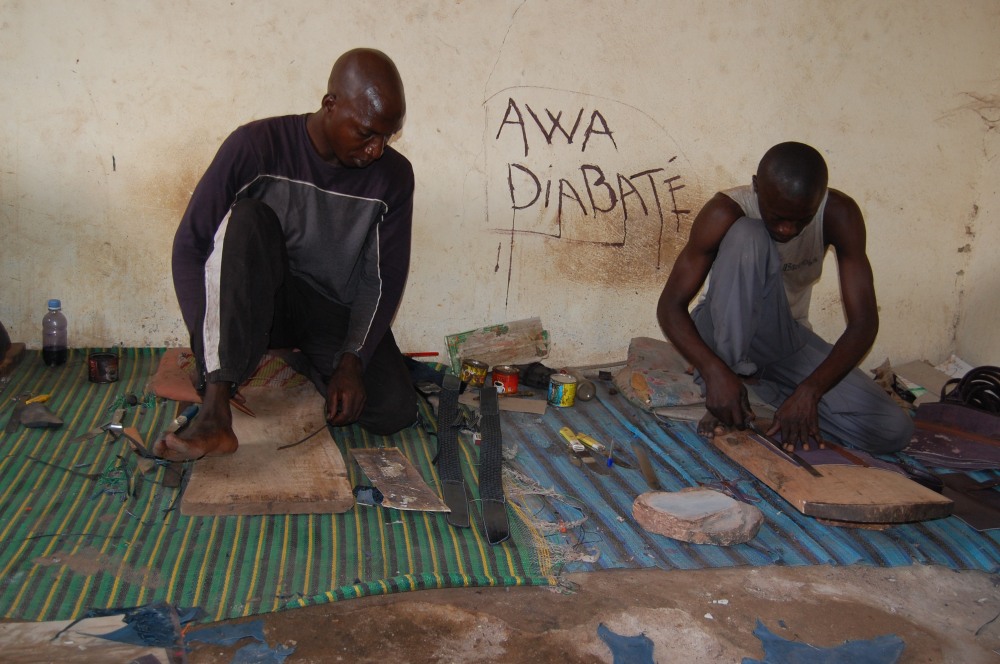 "We drove about 45 minutes across Bamako in perhaps one of the most uncomfortable cars I have ever been in, and in Africa I’ve been in a few. It had no suspension, no seatbelts (although that’s the norm here) and the seats were leather, and at the hottest part of the day, it burned us through our trousers. It was worth it though, as we visited five artisans that day, and got lots of information and pictures for our catalogue. The first one was difficult to see though, as it’s difficult to know what good working conditions are here for arts and crafts. The first workshop was just a bare room, with four artisans working on the floor, making bags out of leather. The bags were beautiful and of great quality, but the room was full of flies who were attracted to the skin, and it didn’t make for a very pleasant atmosphere.
"We drove about 45 minutes across Bamako in perhaps one of the most uncomfortable cars I have ever been in, and in Africa I’ve been in a few. It had no suspension, no seatbelts (although that’s the norm here) and the seats were leather, and at the hottest part of the day, it burned us through our trousers. It was worth it though, as we visited five artisans that day, and got lots of information and pictures for our catalogue. The first one was difficult to see though, as it’s difficult to know what good working conditions are here for arts and crafts. The first workshop was just a bare room, with four artisans working on the floor, making bags out of leather. The bags were beautiful and of great quality, but the room was full of flies who were attracted to the skin, and it didn’t make for a very pleasant atmosphere.
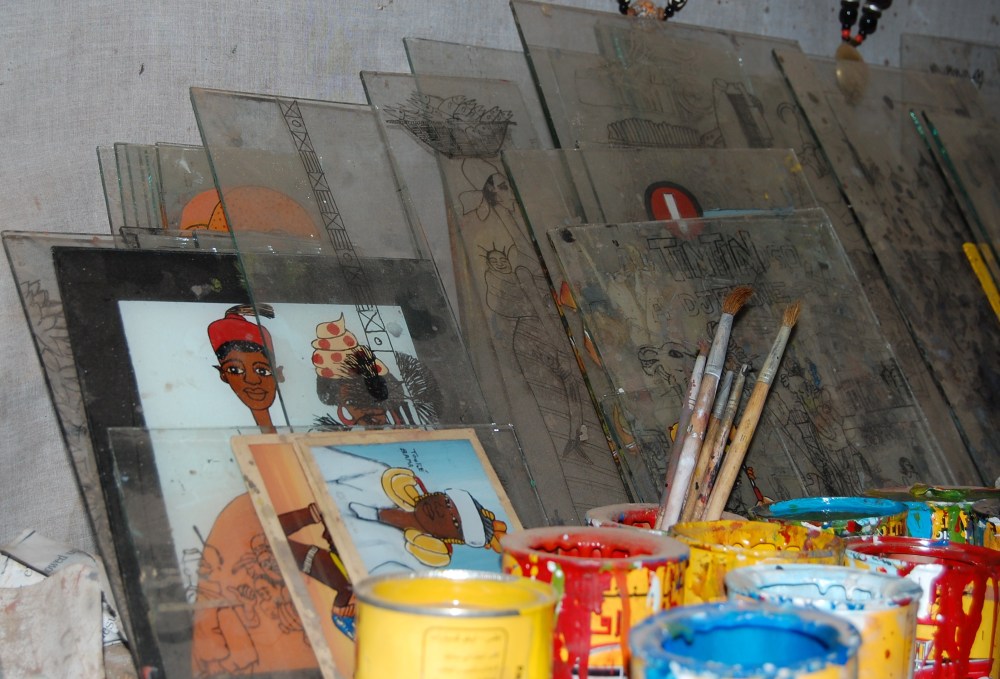 Friday was a really interesting day. I went with David this time, and we’d already planned to go to Segou at 2pm, so had made it clear to them the day before that we had to start earlier this time. We got to the AJA office at 8.50am (I was sick of needlessly getting up at 6.30) and set off on time, for what has to be the first time ever here in Mali! We first went to visit the most amazing lady I think I will ever meet. She is a widower (her husband died in 1985) and she runs a centre for other widowers and their children, and they make traditional clothes such as ‘bogalan’ and also recycled paper. I thought this was brilliant, as they use white paper (with no writing on them), then soak it in water, do something else to it, and use a food processor to mash it all together again, it’s really innovative.
Friday was a really interesting day. I went with David this time, and we’d already planned to go to Segou at 2pm, so had made it clear to them the day before that we had to start earlier this time. We got to the AJA office at 8.50am (I was sick of needlessly getting up at 6.30) and set off on time, for what has to be the first time ever here in Mali! We first went to visit the most amazing lady I think I will ever meet. She is a widower (her husband died in 1985) and she runs a centre for other widowers and their children, and they make traditional clothes such as ‘bogalan’ and also recycled paper. I thought this was brilliant, as they use white paper (with no writing on them), then soak it in water, do something else to it, and use a food processor to mash it all together again, it’s really innovative.She also has a training classroom for the children as well, where they train them in French and clothes making, amongst other things; they have a ‘cyber cafe’ too, in the loosest sense of the word. It basically consists of some ancient Dell desktop computers that some Germans sent over and they attempted to rebuild.
The lady was amazing however. She has a really funky name that I can’t remember, but we just stayed and chatted to her for about an hour and a half, as opposed to the half an hour we spent with the other artisans. She’s not selling enough products at the moment, which means that sometimes she can’t afford to pay her workers. I’ve decided I’m going to fundraise for her when I get home; I wanted to do it before I came out, but I wanted to make sure the money went to a project that I knew needed it, and this one definitely does. She had a really nice relationship with the ladies from AJA, almost one of a grandmother, and she was really sweet.
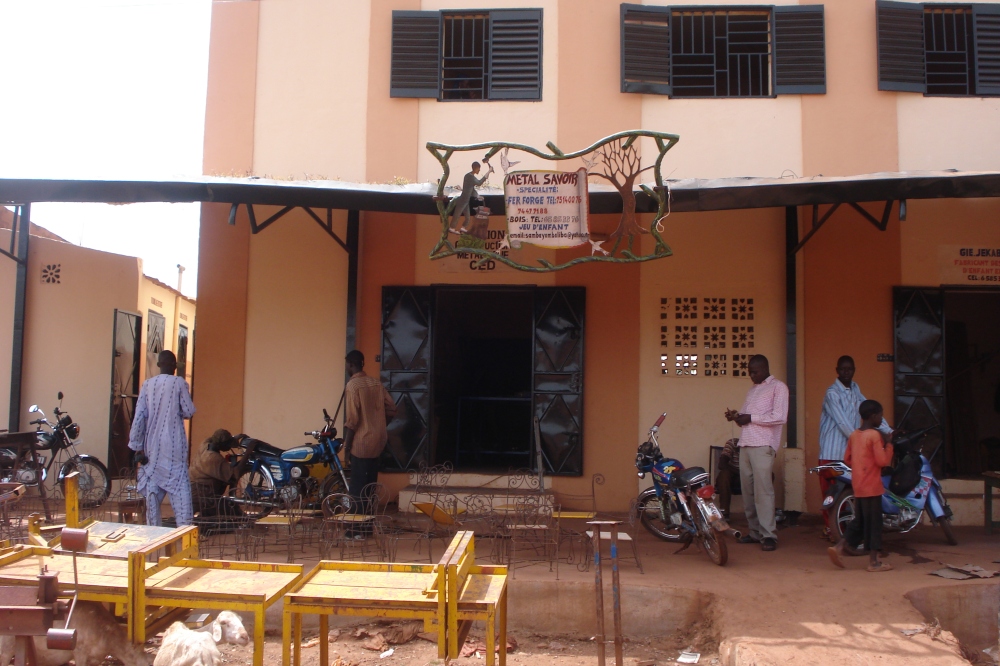
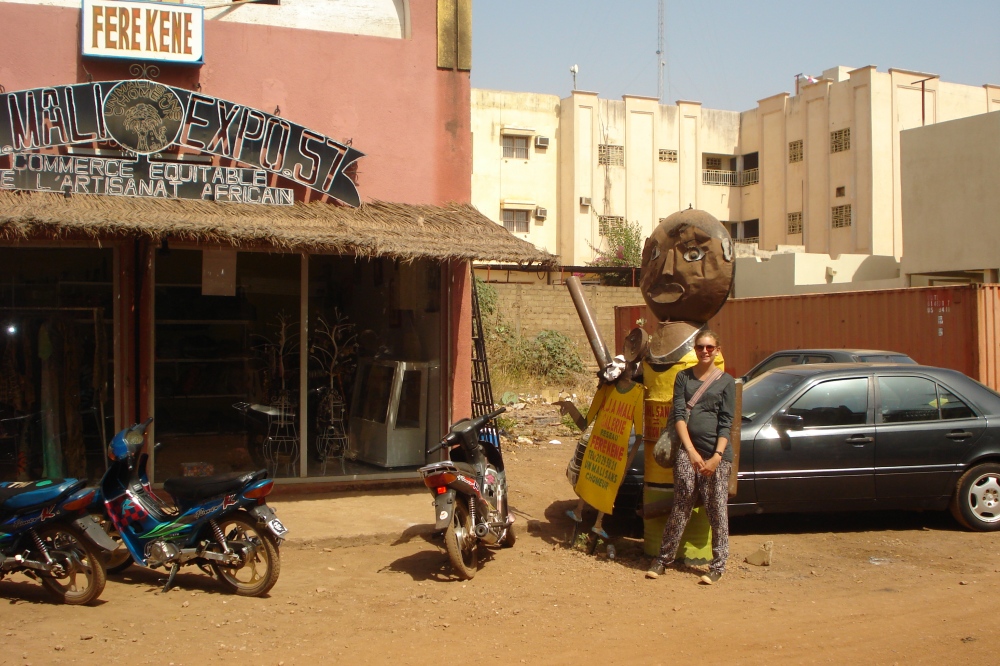

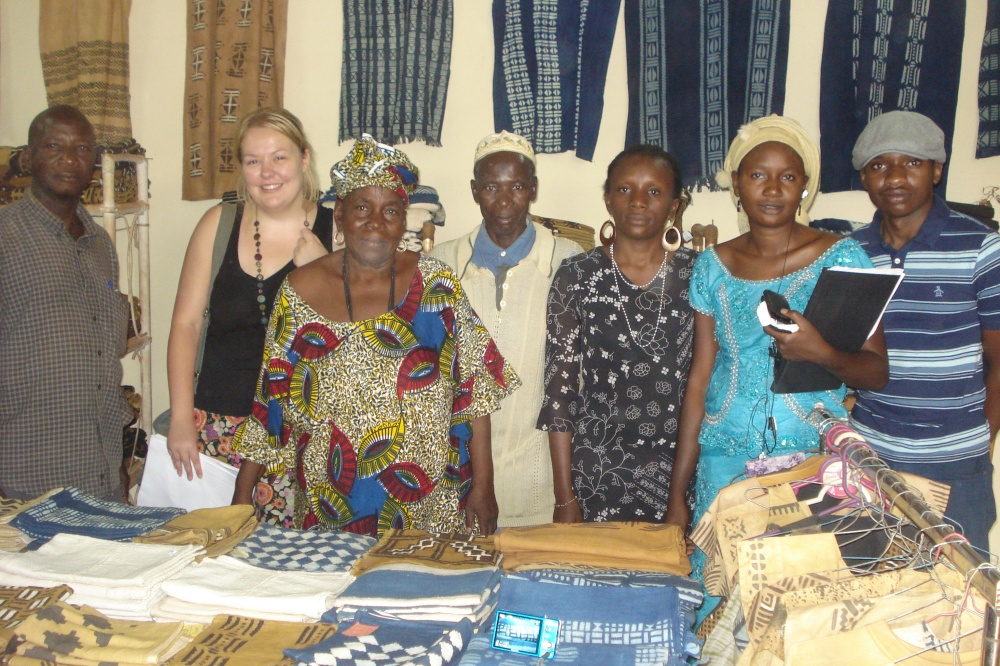
Coca Cola must be the most ubiquitous brand in the world. Even the smallest village, in the middle of nowhere, has a shop with the brand in big letters all over it, and hundreds of bottles of the stuff. It’s surreal, and slightly disturbing.
On the other side, we walked through two fishing villages which are clearly quite the tourist attraction. I’m not sure how I felt about the whole thing to be honest.
The children, like all children here, love to be photographed, as it’s usually the only time they get to see themselves or their reflection, which is fair enough. However, they wanted presents in return, which is also fair, but it seemed very odd experiencing their normal way of life as a tourist attraction. None of them really spoke French, but all the children knew ‘donner moi un cadeaux’ which means give me a present. I’ve experienced things like this before, and I know it helps to increase their income, but it still makes me feel uncomfortable. It was a really nice walk though, a really beautiful place.
The children, like all children here, love to be photographed, as it’s usually the only time they get to see themselves or their reflection, which is fair enough. However, they wanted presents in return, which is also fair, but it seemed very odd experiencing their normal way of life as a tourist attraction. None of them really spoke French, but all the children knew ‘donner moi un cadeaux’ which means give me a present. I’ve experienced things like this before, and I know it helps to increase their income, but it still makes me feel uncomfortable. It was a really nice walk though, a really beautiful place.
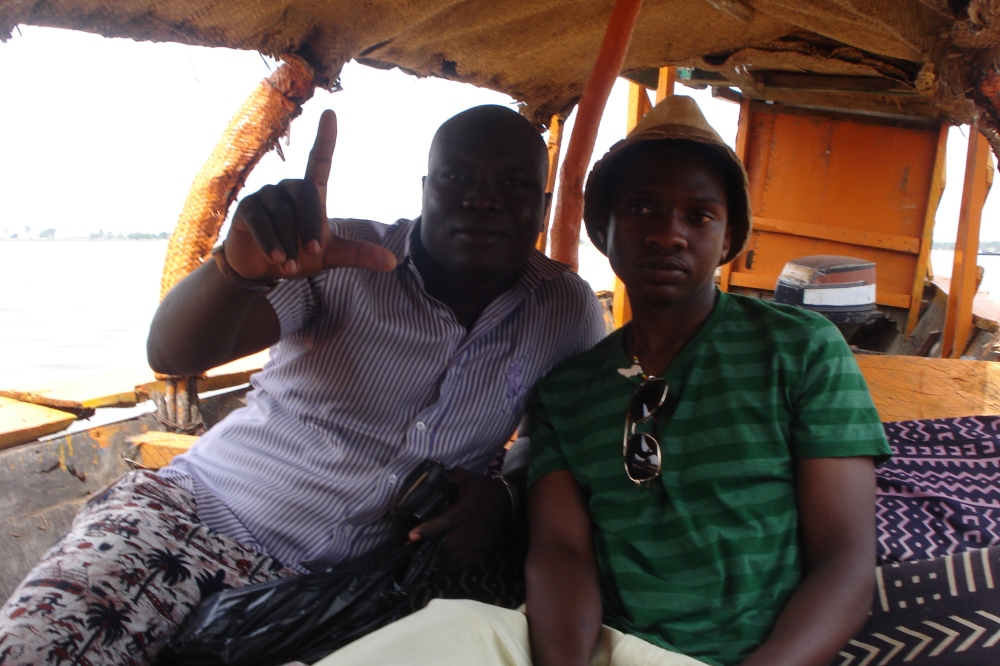

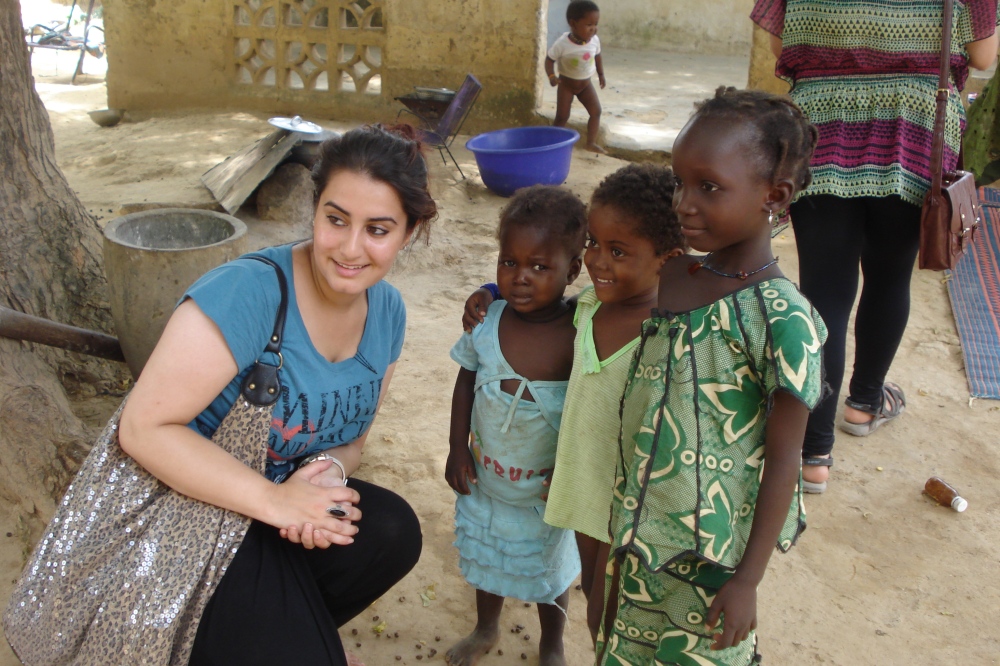
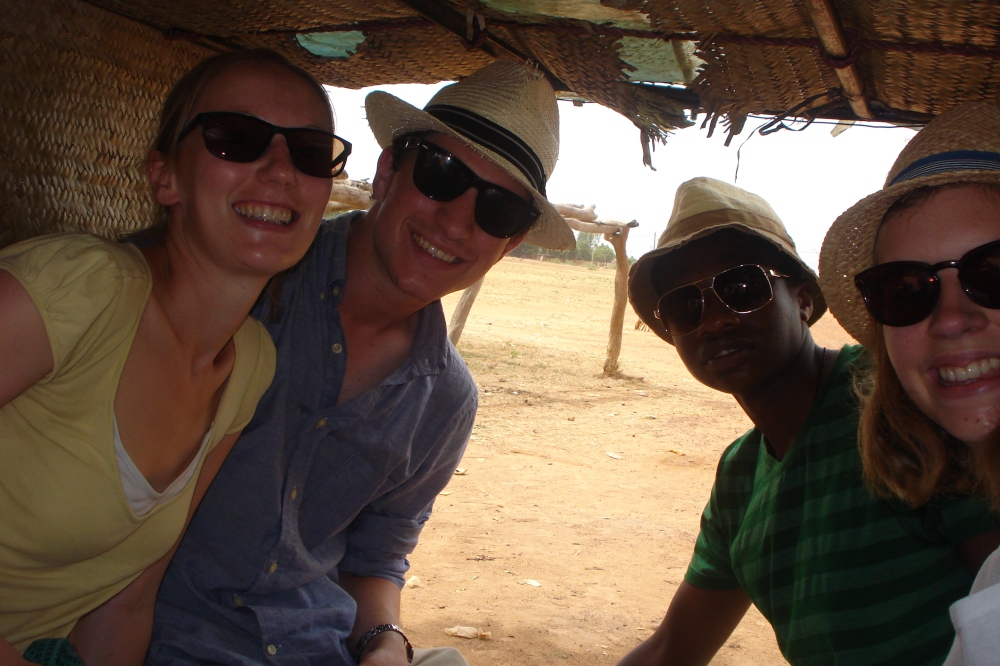
Washing clothes is an interesting experience here. As David keeps delighting in telling me, the Sahara produces 65% of the world’s dust, and I think it’s all here in Mali. Clothes are always orange, and you’re never sure whether you’ve got a tan or you’re just dusty. I’ll never take a washing machine for granted again. There’s an area outside and a bucket, and you can buy detergent from the supermarket for 200CFA (about 30p) then you wash them by hand and leave them to dry in the sun.
I never manage to get everything properly clean though. Awa, the cleaning lady here, is brilliant at it, there’s a real skill to it, and you can pay her 2000CFA to do it, but I feel really bad if I don’t do it myself. It’s also (understandably) rude to give people your underwear to wash, so looks like I’m doing that in the sink before I go to bed!"
I never manage to get everything properly clean though. Awa, the cleaning lady here, is brilliant at it, there’s a real skill to it, and you can pay her 2000CFA to do it, but I feel really bad if I don’t do it myself. It’s also (understandably) rude to give people your underwear to wash, so looks like I’m doing that in the sink before I go to bed!"
25th October 2011
The big thing this week, of course, is the fact that Gaddafi was captured and murdered in Libya this week. Mali is a place where there is a lot of pro-Gaddafi support as I’ve mentioned before. There is a selection of hotels owned by his sons called the ‘Libya Hotel,’ he paid for a vast majority of the government, and other ornate buildings within the capital, and generally had a hand in a lot of pies here in Bamako. It’s normal here to openly support Gaddafi; a lot of the Sutramas and cars have stickers with his face on, and people talk about him quite openly.
It was quite interesting then, to see the reaction when we learned of his death on Thursday afternoon. We were the first people to discover the news, as not a single Malian newspaper covered the story until much later in the day; of course, very few people have access to internet and the media here, and so it wasn’t that surprising, but it’s hard to adjust to when we’re used to having 24 hour access to news coverage. We found out from the BBC website, and were, naturally quite shocked and a bit wary, but told the people we work with in the office.
Their reaction was one of pure disbelief; they genuinely disbelieved us, and mistrusted the western news coverage. When we insisted that it was most likely to be true (although most of the media had the word ‘killed’ in inverted commas until later in the evening, we knew they wouldn’t have reported it in the first place if it wasn’t almost certainly the truth), they dismissed the BBC, though they read the stories carefully, and wouldn’t believe it until L’Essor (the main newspaper here in Bamako) printed it on their website, albeit in a small non-descript story hidden away from the main headlines.
It was quite interesting then, to see the reaction when we learned of his death on Thursday afternoon. We were the first people to discover the news, as not a single Malian newspaper covered the story until much later in the day; of course, very few people have access to internet and the media here, and so it wasn’t that surprising, but it’s hard to adjust to when we’re used to having 24 hour access to news coverage. We found out from the BBC website, and were, naturally quite shocked and a bit wary, but told the people we work with in the office.
Their reaction was one of pure disbelief; they genuinely disbelieved us, and mistrusted the western news coverage. When we insisted that it was most likely to be true (although most of the media had the word ‘killed’ in inverted commas until later in the evening, we knew they wouldn’t have reported it in the first place if it wasn’t almost certainly the truth), they dismissed the BBC, though they read the stories carefully, and wouldn’t believe it until L’Essor (the main newspaper here in Bamako) printed it on their website, albeit in a small non-descript story hidden away from the main headlines.
Although Mali is a model democracy, it’s still the fourth-poorest country in the world. Although it’s a developing country, a lot of reliance is placed upon computer and internet access in good jobs, and if you don’t have that then it’s difficult to get a good job. (Adama told me that it’s about 700,000CFA for a decent laptop, which is about £1000 – expensive in England, but barely affordable in Mali).
The country relies heavily on international aid and on good weather as it’s a mainly agricultural economy. It produces masses of gold, but there is a lot of corruption around so it’s rare that money goes to the right places, and according to the Lonely Planet, more government money in Mali is still spent on debt-servicing than on education. It seems to me that, at the moment, the country is stuck in a rut that it can’t get out of, and that the rich-poor divide is only going to increase and at a phenomenal rate. There is another election next year, and ATT can’t run for re-election, so maybe the next candidate will improve the situation. Adama didn't know who was running, so only time will tell I think.


The country relies heavily on international aid and on good weather as it’s a mainly agricultural economy. It produces masses of gold, but there is a lot of corruption around so it’s rare that money goes to the right places, and according to the Lonely Planet, more government money in Mali is still spent on debt-servicing than on education. It seems to me that, at the moment, the country is stuck in a rut that it can’t get out of, and that the rich-poor divide is only going to increase and at a phenomenal rate. There is another election next year, and ATT can’t run for re-election, so maybe the next candidate will improve the situation. Adama didn't know who was running, so only time will tell I think.


One day this week, we decided to go up to Point G, the highest point in the city, to see the sunrise. We set off from the office at 4am, and we had split into three groups altogether; Me, Dave and Sam; Shawana, Alice and Jim and then Dan and Lucy who were coming later. When we got there, there was no sign of the other three, so we assumed they’d gone ahead. We asked the taxi driver to point us in the right direction, then walked ‘tout droit’ as he instructed.
Picture the scene; it’s pitch black, the patch seemingly leads into the middle of nowhere, you’re right next to a hospital, and in the leaves and litter next to you, you can hear scuttling which is almost certainly a rat the size of a small cat (no exaggeration, I’ve seen them!). You walk on a bit further, and it’s silent, then out of nowhere comes a …. RABIES DOG! I should tell you at this point that it wasn’t actually a rabid dog (although one has been spotted, fortunately not by me, dead and foaming in the middle of the road), but although I’m not scared of dogs back home, the ones out here aren’t pets so are quite scary. My reaction whenever I see one is to therefore shout ‘Rabies dog!’
Picture the scene; it’s pitch black, the patch seemingly leads into the middle of nowhere, you’re right next to a hospital, and in the leaves and litter next to you, you can hear scuttling which is almost certainly a rat the size of a small cat (no exaggeration, I’ve seen them!). You walk on a bit further, and it’s silent, then out of nowhere comes a …. RABIES DOG! I should tell you at this point that it wasn’t actually a rabid dog (although one has been spotted, fortunately not by me, dead and foaming in the middle of the road), but although I’m not scared of dogs back home, the ones out here aren’t pets so are quite scary. My reaction whenever I see one is to therefore shout ‘Rabies dog!’
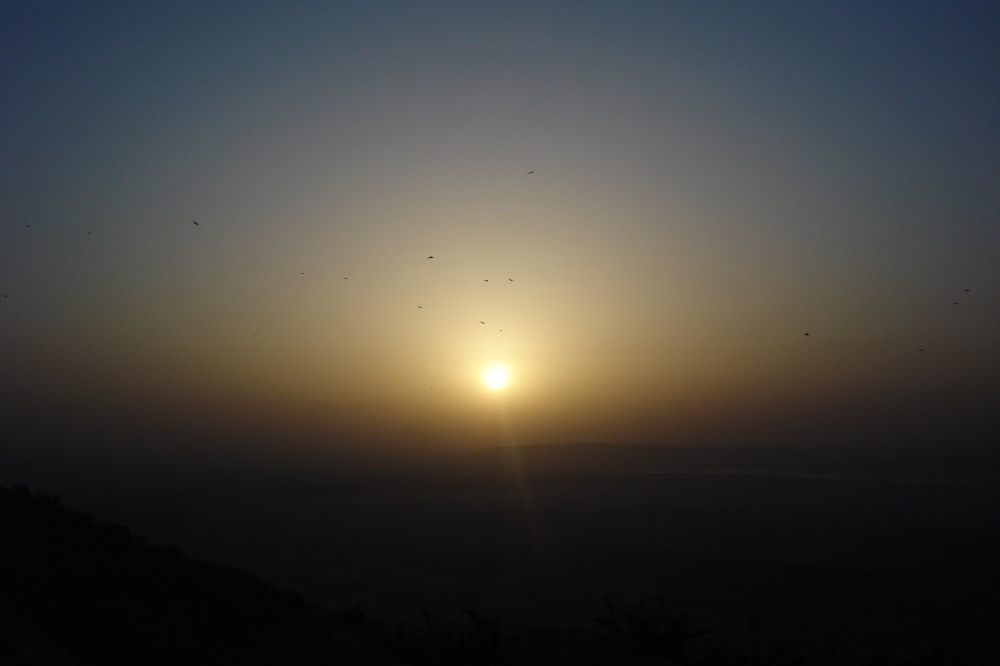
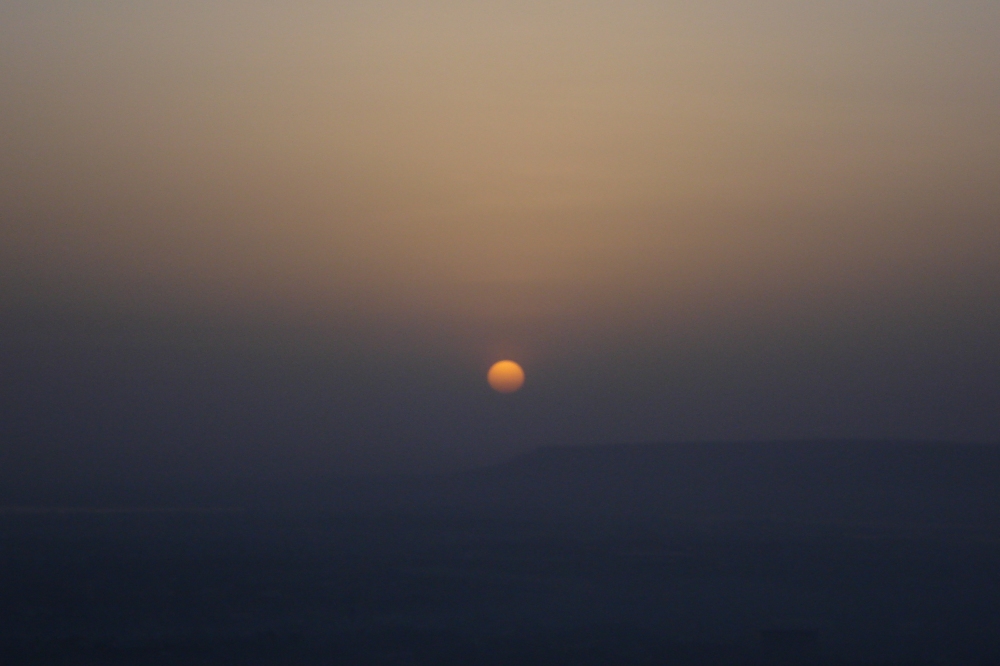
It was so, so worth it though; if you’ve never seen the sun rise in Africa, it’s something you have to do. I’ve seen it a few times now, and although nothing will beat the time I saw it on the summit attempt of Kilimanjaro, it’s pretty magical! I did take some photographs, but they don’t really capture the essence of it! Also, what turned out to be a construction site turned out to be an outside gym, and we were soon joined by a couple of Malians, quietly working out near us. We think they were something to do with the military as we were near quite a few military bases, as we were near the President’s hill.
1st November 2011
On Saturday, we went to a place called Kati, a little town just outside of Bamako, which we reached via Sotrama. We got a taxi to the Marche de Medina (much less hassle than the Grandmarche…Alice and Shawana went last week, and when they asked the market men (people who want to act as your guide and sell you things and hassle you in return for payment) nicely to leave them alone, they got shouted at, called racists and whores, and other horrible things, so we try and avoid there now) as that’s where the Sotramas went from, then spent about 20 minutes dodging water sellers, fumes and hasslers, trying to find the right Sotrama.
Fortunately though, people are friendly enough, and soon directed us to the right one, and we were on our way for 250CFA (about 40p for a journey that took about 45 minutes!) Now then, how many people do you think you can fit in a Sotrama (a ‘bus’ that has about as much space inside as a pick-up truck, covered). 10/11 maybe? 15 at a push? Yeah, try 23!! There was even a lady sat on the floor on a petrol can, though we’d have been in trouble had the police stopped us! We figured though that, although it’s very sweaty and very uncomfortable, it’s actually safer as you’re wedged in, so when you’re bumping around on the African roads, you can’t move!
Fortunately though, people are friendly enough, and soon directed us to the right one, and we were on our way for 250CFA (about 40p for a journey that took about 45 minutes!) Now then, how many people do you think you can fit in a Sotrama (a ‘bus’ that has about as much space inside as a pick-up truck, covered). 10/11 maybe? 15 at a push? Yeah, try 23!! There was even a lady sat on the floor on a petrol can, though we’d have been in trouble had the police stopped us! We figured though that, although it’s very sweaty and very uncomfortable, it’s actually safer as you’re wedged in, so when you’re bumping around on the African roads, you can’t move!

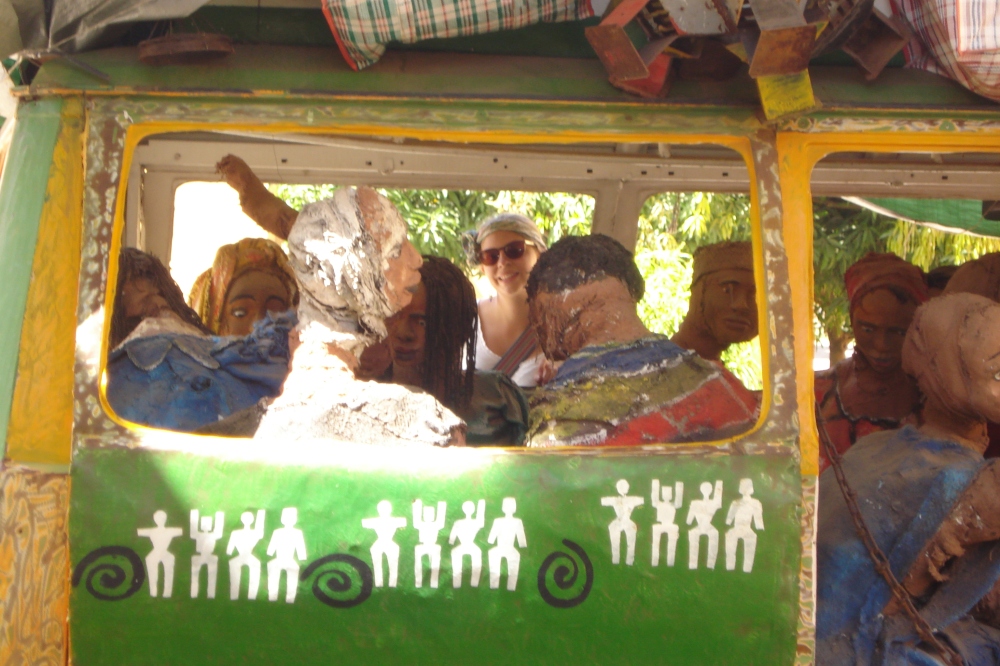
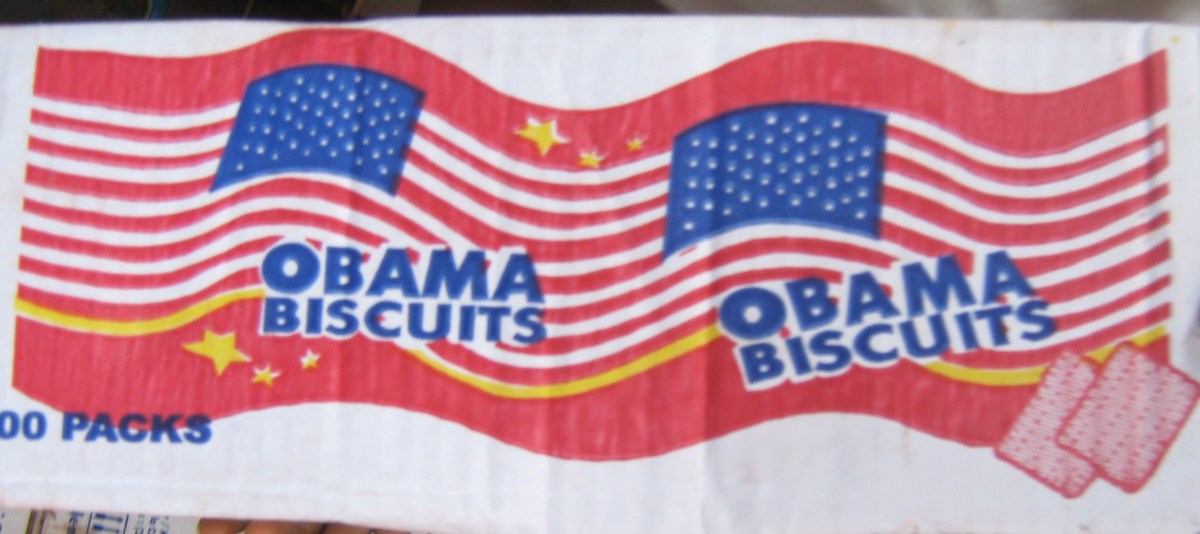
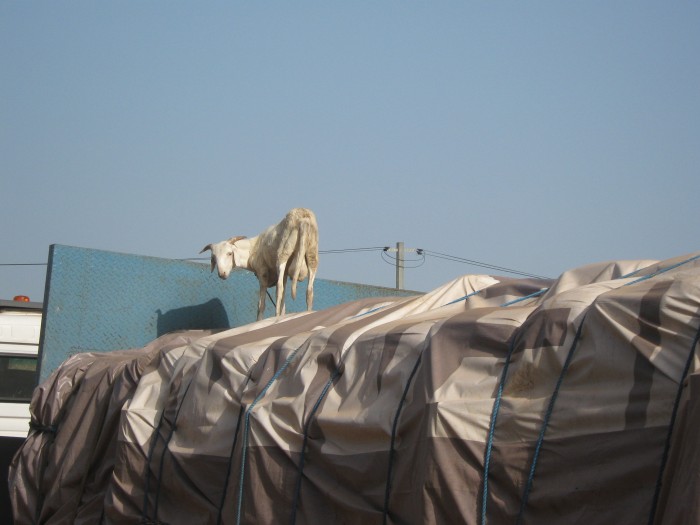
Today was a day that basically sums up Africa to a tee, it’s quite amusing. As I said before, this morning we headed to Baguineda too late to actually do anything. On the way to Baguineda though, we saw two vans with about 50 goats each tied to the top, still alive, but tied lay down so they couldn’t move, then also a bus with about 100 tied to it! It makes me sad that they’re transported like this, but it’s their way of life so there’s nothing you can do. It’s because it’s Tabaski this weekend, and it’s tradition to kill a goat at the ceremony. Bleurgh. Fortunately, that’s a man’s job.
It wasn’t a wasted trip though, as we headed down to the river, about a 5 minute drive from Baguineda (I wanted to walk but they wouldn’t let me. I really miss walking; they never let me go anywhere, and I like just going for a wander on my own!) to a fishing village. Here, we hopped on a boat, drove across the river, casually picked up about 5 women, some bits and pieces…and a donkey! He was very cute (though they don’t think of animals like that here, they’re working animals. Sogodogo just laughed at us (in a nice way) when we said that he was cute and that we thought he was sad) and we petted him, and Alice even rode him!
He then had to get in the boat back over the river, which he didn’t like though, and they had to lie him down then pin him down so he didn’t jump out, which made me sad even though I knew it was just so that he wouldn’t hurt himself.
It wasn’t a wasted trip though, as we headed down to the river, about a 5 minute drive from Baguineda (I wanted to walk but they wouldn’t let me. I really miss walking; they never let me go anywhere, and I like just going for a wander on my own!) to a fishing village. Here, we hopped on a boat, drove across the river, casually picked up about 5 women, some bits and pieces…and a donkey! He was very cute (though they don’t think of animals like that here, they’re working animals. Sogodogo just laughed at us (in a nice way) when we said that he was cute and that we thought he was sad) and we petted him, and Alice even rode him!
He then had to get in the boat back over the river, which he didn’t like though, and they had to lie him down then pin him down so he didn’t jump out, which made me sad even though I knew it was just so that he wouldn’t hurt himself.
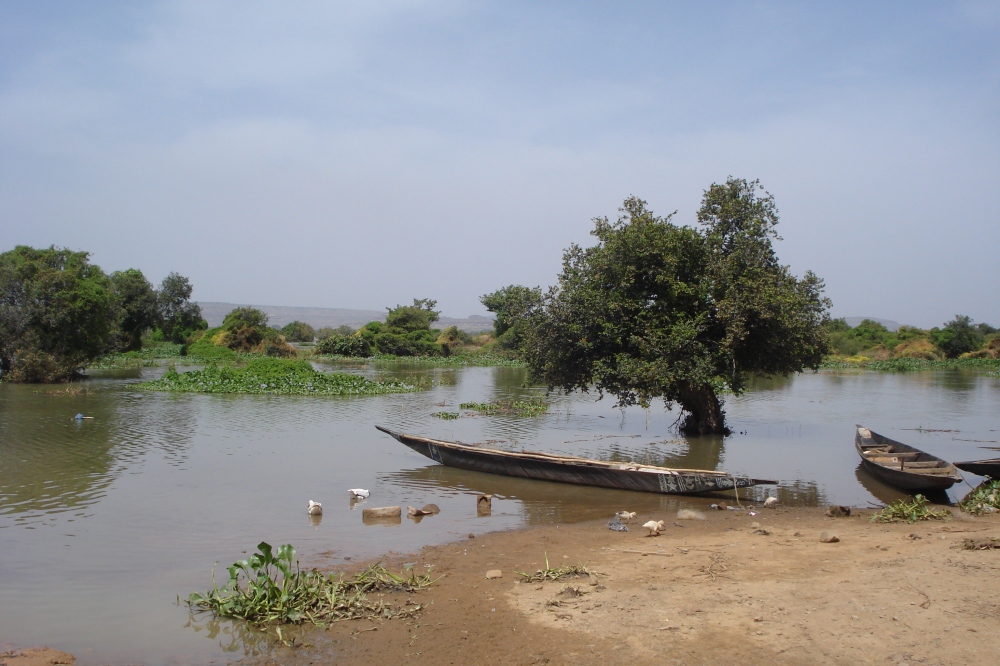

We went out for tea when we got back at a restaurant we like near the French Institute, which was nice, and then we hopped in a taxi back home, which was definitely interesting. As tends to happen a lot, the taxi broke down, but we were in the middle of a three-lane carriageway!
Jim and the driver managed to push us over to the side of the road fortunately, although there were a few hairy moments, and we stood waiting while two other taxis pulled over to help the driver. Then two military personnel came over, not to help, but to shout at us and tell us to move because we were on a military road, so two taxi drivers pushed the car back out onto the main road and round the corner, trying to dodge fast-moving traffic as they went.
We were taken by the third driver, first around the corner out of harm’s way, and then he agreed to take us home quite cheaply, so all was well. As a bonus, he loved Bob Marley (quite common here) and played it loudly all the way home, which was fun! None of this is out of the ordinary in our everyday lives, which I love!
We were taken by the third driver, first around the corner out of harm’s way, and then he agreed to take us home quite cheaply, so all was well. As a bonus, he loved Bob Marley (quite common here) and played it loudly all the way home, which was fun! None of this is out of the ordinary in our everyday lives, which I love!


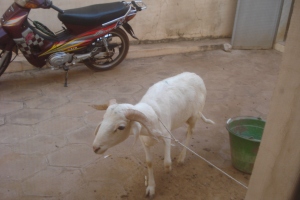


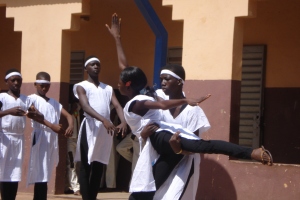

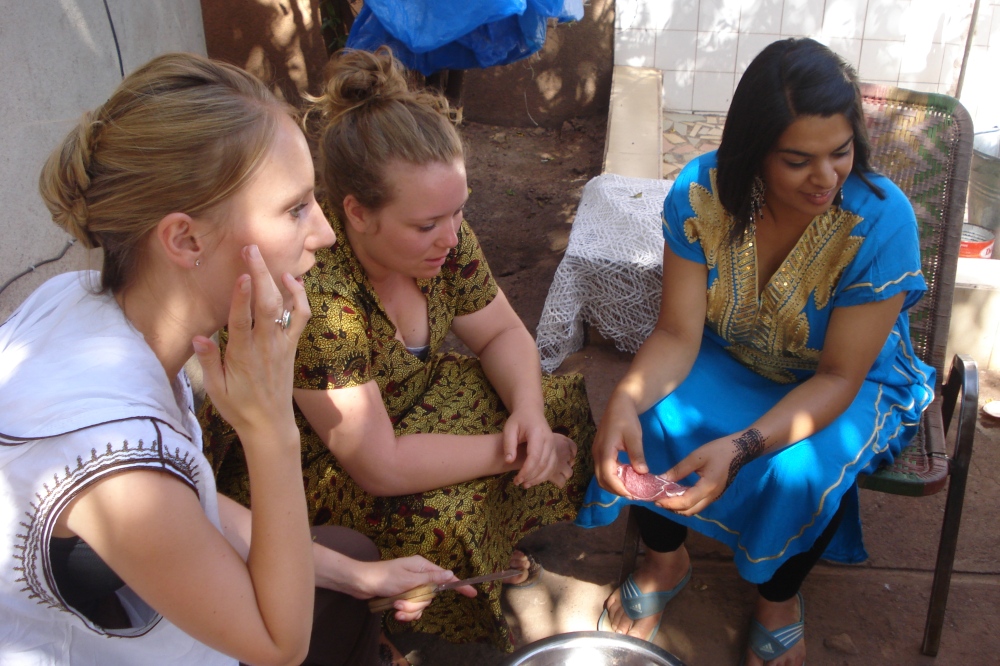

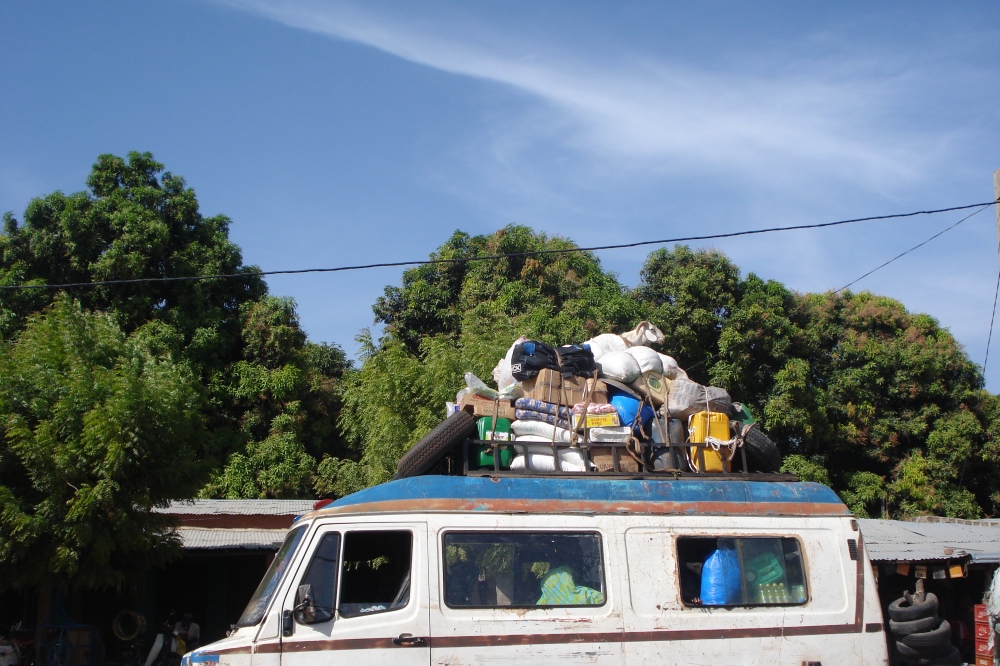
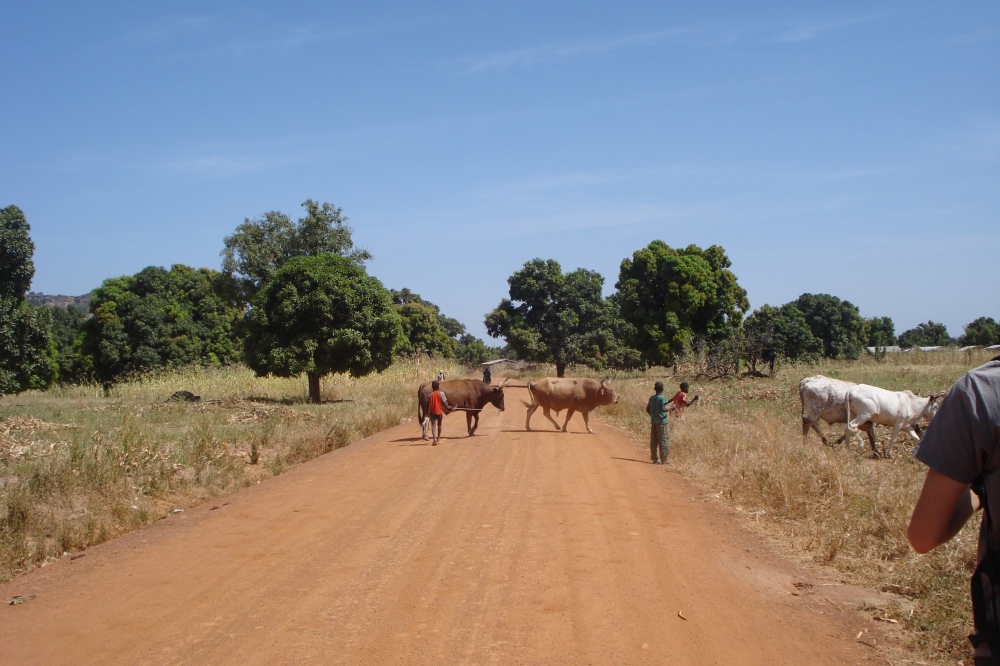





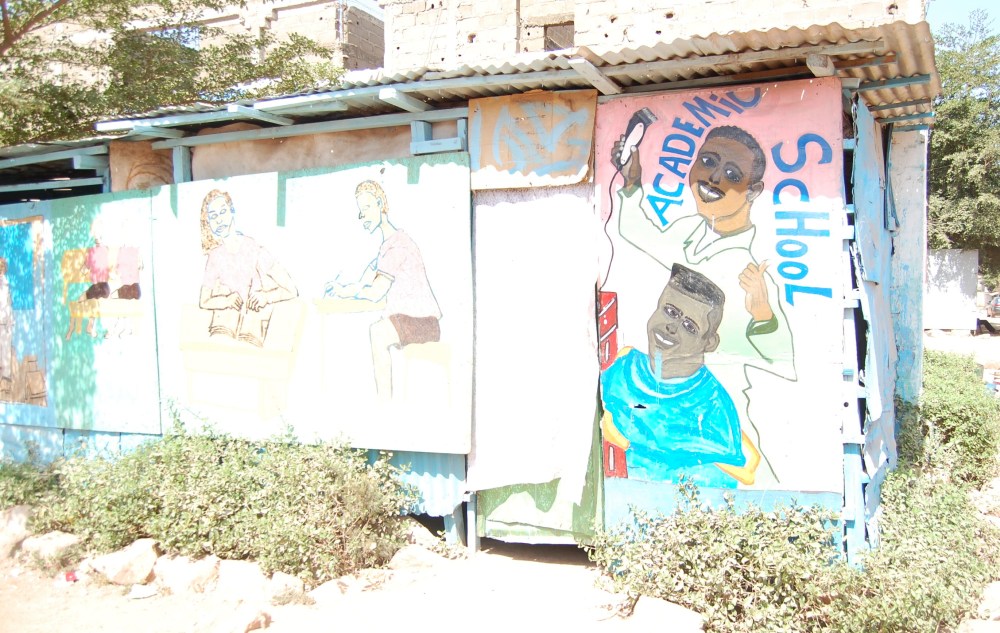

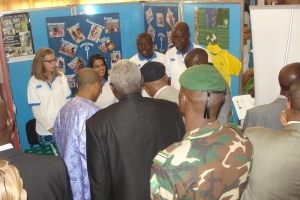
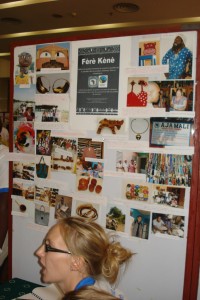
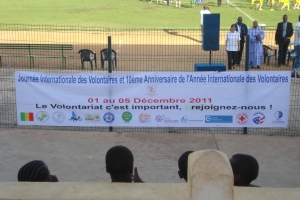
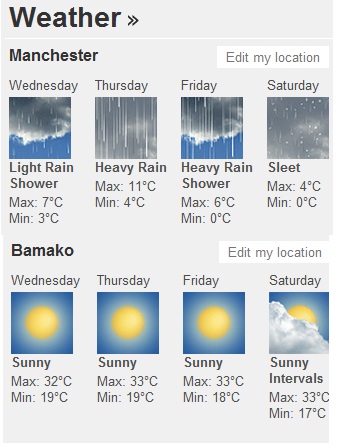


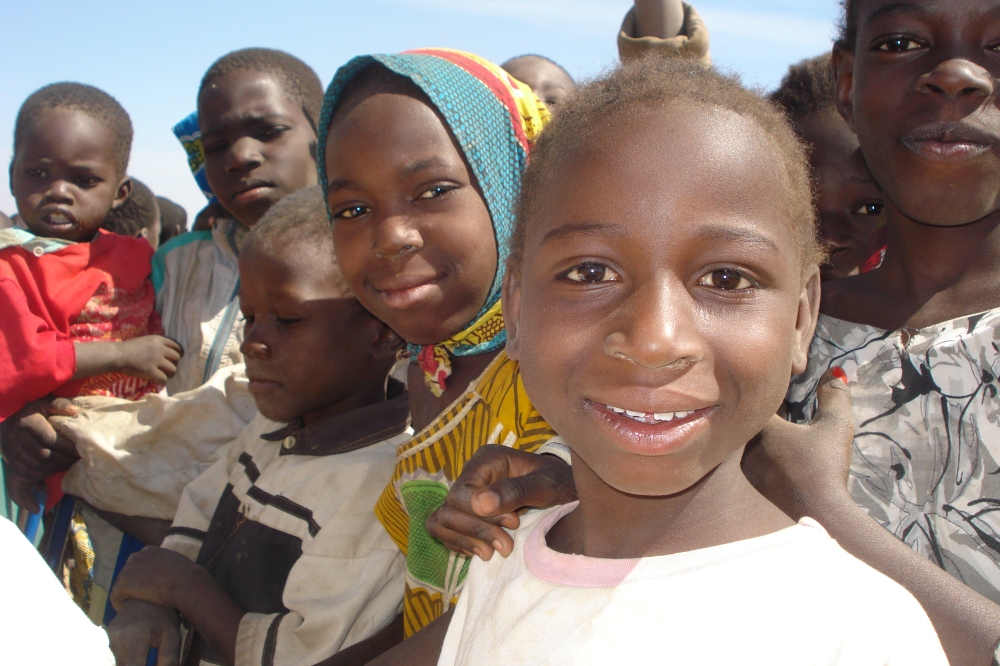
No comments:
Post a Comment